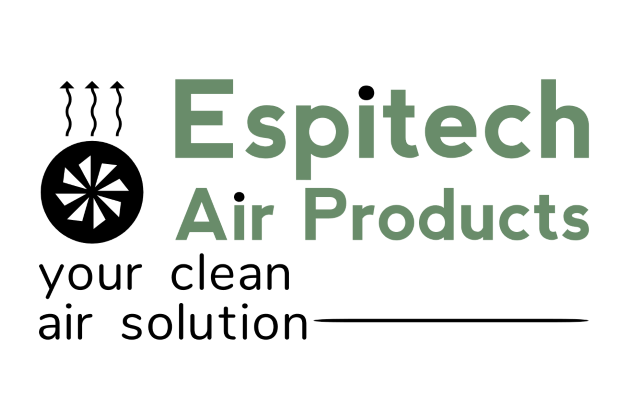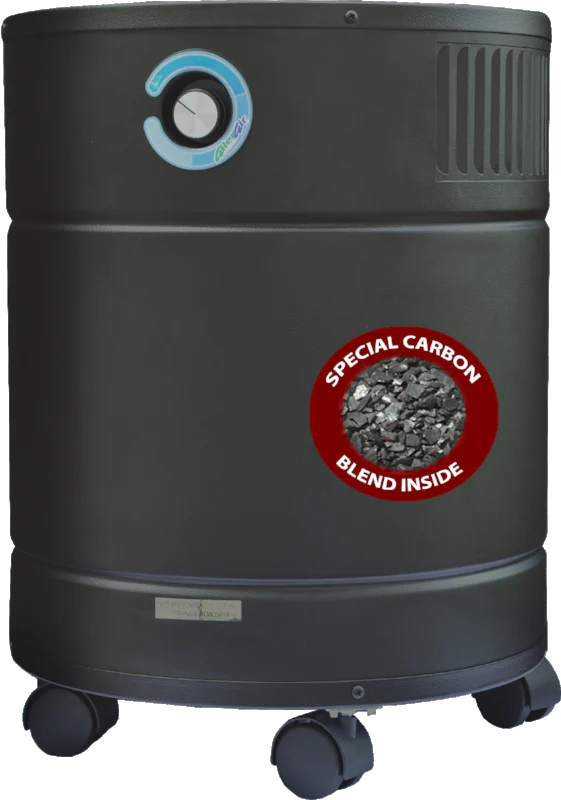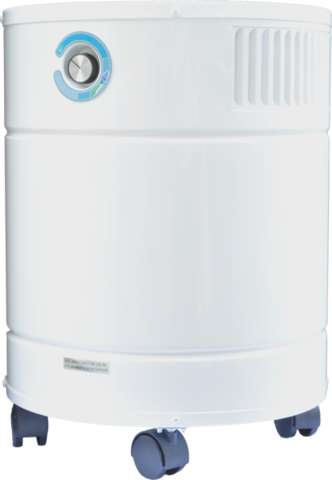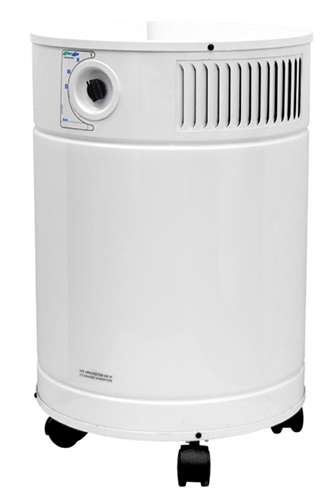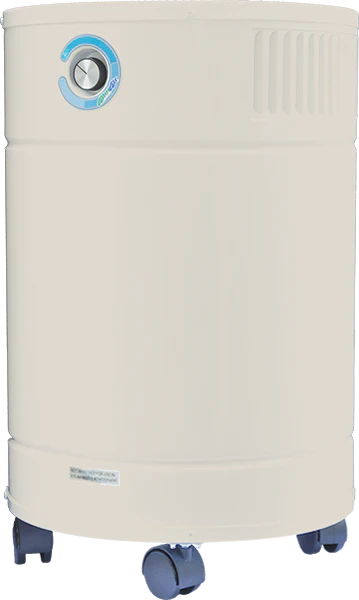Wait, there's more Super HEPA filter advantages!
No off-gassing:
Super HEPA was originally only offered to AllerAir’s most chemically sensitive customers, as it is an inert particle filter that does not release noticeable odors. A regular HEPA, on the other hand, is not made out of inert materials and proved to be an inferior option for those who are very sensitive to chemicals. MCS, or Idiopathic Environmental Intolerance (IEI) is known as a “chronic, recurring disease caused by a person's inability to tolerate an environmental chemical or class of foreign chemicals” (according to the National Institute of Environmental Health Sciences). While the condition remains controversial in medical circles, those suffering from it can still benefit from inert filters - and it doesn’t hurt to add a level of protection for everyone else as well.
Zero polymer:
A regular HEPA filter is held in place by a polymer ring on top and bottom, which can off-gas and become bothersome for customers. The Super HEPA, by contrast, is securely wrapped around the carbon filter and does not need additional materials to keep it in place.
Binder-free:
Super HEPA is made out of a tightly woven and very flexible material that does not require binders to hold it together. A regular HEPA’s fiberglass fiber mat is made with binders, a type of glue, which can also off-gas.
No borosilicate:
Unlike regular HEPA filters, Super HEPA is not made of borosilicate fibers. Borosilicate is a type of glass made from silica sand, soda, ground lime and boric oxide. When borosilicate particles become airborne, they are a health hazard for those breathing them in. The Super HEPA filter has a proven track record in AllerAir’s air purifiers. Paired with a deep-bed activated carbon filter to remove airborne chemicals, odors and irritating volatile organic compounds, it delivers outstanding overall protection from indoor air pollution.
